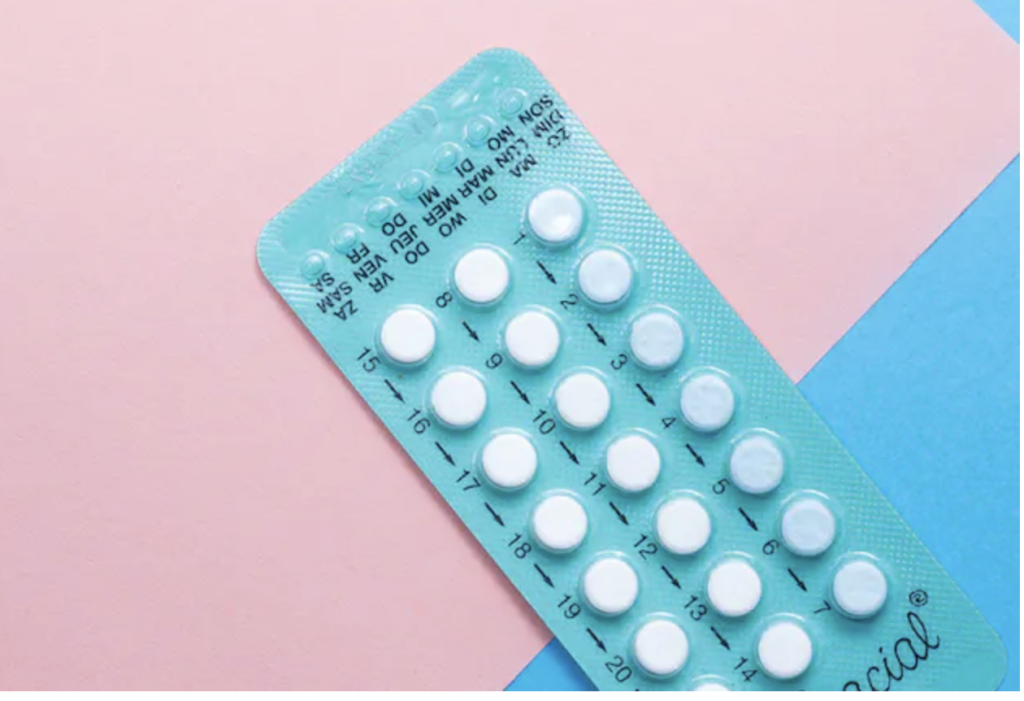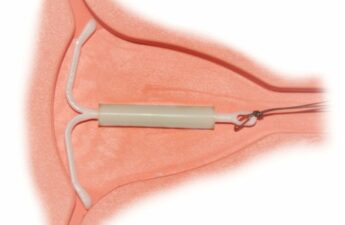
Christopher O’Sullivan, Manchester Metropolitan University
Social media is full of bad advice when it comes to your health. With so much of this content created by influencers who don’t actually have medical qualifications, it’s no wonder that misinformation about health spreads so easily online.
In recent years, there’s been a rise in misinformation about hormonal contraceptives on social media. Some women are reportedly even stopping their birth control as a result of misleading posts they’ve seen on TikTok and Instagram.
These three common misconceptions about birth control are cropping up online and need to be put in context:
1. Contraception causes depression
Countless videos on social media discuss the effect hormonal contraceptives have on mental health – with some creators claiming birth control causes mood changes and even depression.
But these videos are anything but definitive. Although there’s some correlation between mental health and some forms of contraception, there are many factors at play.
Evidence shows that modern, combined hormonal contraceptives (which contain artificial versions of the reproductive hormones progestin and oestrogen) do not have any affect on mood or mental function. Some research has even highlighted cases where patients who took combined oral contraceptives had lower levels of depression than patients who received a placebo dose.

This article is part of Quarter Life, a series about issues affecting those of us in our 20s and 30s. From the challenges of beginning a career and taking care of our mental health, to the excitement of starting a family, adopting a pet or just making friends as an adult. The articles in this series explore the questions and bring answers as we navigate this turbulent period of life.
You may be interested in:
Five important things you should have learned in sex ed – but probably didn’t
Why your period symptoms might be worse in the winter
Emergency contraception: here’s what you probably don’t know but should
But research has shown a correlation between progesterone-only types of contraception (such as the mini-pill and the medroxyprogesterone acetate or Depo-Provera injection) and mood change. This is why some contraceptives list mood change as a “common” side effect (occurring in between one to ten or one in 100 women, depending on the brand). The evidence suggests depression is more common in adolescent girls – and diminishes after the first two years of taking these forms of birth control.
Despite these links being drawn, a 2018 large-scale review disputes this, claiming that more high quality research needs to be undertaken. The Faculty of Reproductive and Sexual Health (FSRH), one of the leading voices in sexual and reproductive healthcare, also state in its prescribing guidelines that the evidence does not directly prove a relationship between the mini pill and depression – rather, it only shows a link.
At present, there’s little conclusive evidence that contraception (both hormonal and non-hormonal types) cause mental health problems. But if you have experienced mood changes or feel depressed after starting birth control (especially progesterone-only contraception) it’s worth speaking to your doctor as they may be able to prescribe you another type that works better for you.
2. Contraception causes weight gain
Another common social media claim is that birth control causes weight gain. This again is not the full picture.
A 2019 report published by the FSRH concluded there was no evidence that any form of oral hormonal contraceptive (including the pill, implant and intrauterine device or IUD) caused weight gain. They did, however, find evidence showing the majority of reproductive-age women tend to gradually gain weight as they get older – regardless of whether they used contraceptives or not. This can be due to the hormonal and metabolic changes that occur with age.
Other reviews have also reached similar conclusions. This study found that it’s unlikely that hormonal contraceptives cause major weight gain. But the authors of this review did acknowledge that these findings don’t rule out the possibility that some individual women might in fact gain weight. They are calling for more research to be done that directly compares weight changes between birth control users and people who don’t use a contraceptive.
There is one form of contraception that is linked to weight gain. The Depo-Provera injection, which is administered every 12 weeks, has been proved to cause weight gain. This weight gain is more prevalent in people who were already obese before starting the injection. According to one study, women who took the Depo-Provera shot gained almost 5kg in one year.
This weight gain may be due to the progesterone in the shot, which can cause people to feel hungrier – potentially leading to overeating and weight gain.
If you’re concerned about potential weight gain, the injection is not the only form of contraception available. Other forms of hormonal and non-hormonal contraceptives have not been shown to affect your weight.
3. Birth control lowers your fertility
Another common claim on social media is that birth control causes fertility issues. This is not true. Research shows hormonal contraceptives have no affect on fertility.
There’s also concern online that the IUD will could cause pelvic inflammation, leading to infertility. Again, evidence shows that IUDs pose no risk to fertility. A systematic review reports no specific differences in fertility between hormonal and non-hormonal IUDs.
Social media users have also claimed the Depo-Provera injection causes infertility. But again, there’s no evidence to support this. Research shows pregnancy rates are similar for women who had previously used the Depo-Provera injection compared with those who had used other types of contraceptives.
It may take a few months for your menstrual cycle to return to normal after ceasing the injection. This is because of the larger build up of active ingredient in the body, which stops your periods and takes some time to dissipate. Your menstrual cycle may also be different for between two and four cycles after stopping oral contraception.
Many of the misconceptions around contraception have been sensationalised on social media. Contraception is rarely the primary cause of any issue. As with any medication, it may interact with conditions you already have, so it’s important to seek advice about contraception from your doctor or nurse – not TikTok.
Christopher O’Sullivan, Lecturer in Nursing, Manchester Metropolitan University
This article is republished from The Conversation under a Creative Commons license.
Read the original article.


